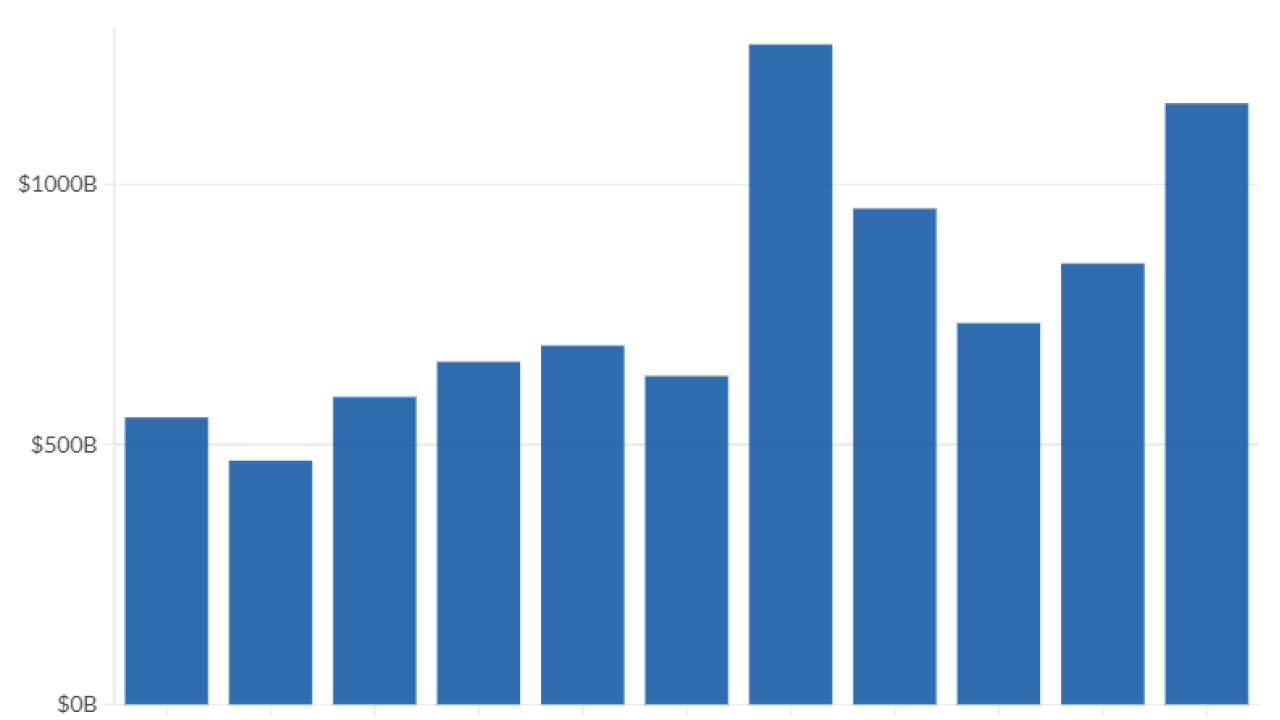Wealthfront’s reported devaluation triggered a round of industry speculation on a perennial subject: the impending extinction of upstart robo advisors.
Despite several projections about the
But some industry observers cautioned against basing predictions about digital advice's future on news about the Silicon Valley-based robo advisor, which did not return requests for comment.
“I really wouldn’t overgeneralize this beyond what it is,” says Michael Kitces,

Wealthfront’s valuation was cut by about a third in its most-recent funding round due to competition concerns, Bloomberg News
Additionally,
The tough news comes after Wealthfront received a heavy dose of industry criticism for its
“If you told me back in 2011 that Wealthfront would be getting into active, I wouldn’t have believed it,” says Grant Easterbrook, founder of retirement solutions provider Dream Forward Financial. “These firms were so anti-advisor and anti-anything other than passive that it just goes to show you how quickly business models can change.”
With Wealthfront not providing any official comment, executives shied from specifically commenting on the reports of its devaluation.
But Kitces says that Wealthfront experiencing a down round does not mean the firm, which has $10 billion in assets under management, isn’t growing.
“Their growth is simply linear,” Kitces says, noting he tracks the asset growth of all the major digital advice platforms.
“They’re pulling in similar dollars every day than they were one and two and three years ago. The problem is that as total assets grows, the growth rate shrinks. Pulling in $300 million a month when they were at $1 billion in AUM was a 30% growth rate. On $10 billion, it’s a 3% growth rate. That’s the problem they’re having. Their asset flows aren’t slowing. But their asset flows aren’t scaling higher. They’re experiencing linear growth flows, which results in a declining growth rate.”
The devaluation news was still of interest to executives such as United Capital CEO Joe Duran, who has long questioned the valuation of independent robo advice firms.
"I have never seen a time when private equity has been so desperate to get into the wealth management space and the fintech space than now," Duran says. "It's not a lack of demand by investors at all. There's no shortage of money."
Instead, the initial excitement that greeted robo advisors has passed and now the startups are under more scrutiny from mature investors, Duran says. "Private equity investors are driven by very different metrics than venture capitalists," he says. "They are going to look at revenue and realistic growth rather than hockey stick events."
A popular industry opinion is that robo advisors, once the disruptors, have become disrupted by
"The robos had free reign and missed the shifts happening in the industry," he says. "I call it the disruptors' dilemma; they ignored the finite window they had before established players adapted. I don't think they’ve evolved their business enough to create a moat between themselves and established players."
The cost of running a direct-to-consumer business and the cost of acquiring clients makes the independent robo model difficult to pull off, adds Apex Clearing CEO Bill Capuzzi. (Until last May, Wealthfront used Apex for its clearing and custody.)
"What you are seeing is those firms that already have those clients are adding robo as a piece to their armor, versus it being a completely independent company," Capuzzi says.
At times, Betterment was brought up in the same social media critiques, which the New York-based digital advice firm rejects. It raised $70 million in its last funding round, at a valuation of $800 million.
"We are adding new deposits at a record rate," says Betterment communications director Joe Ziemer. "2018 is off to a great start in terms of new customers and existing customers adding assets. We are well capitalized and have supportive investors that know the time horizon to build a financial services company is longer than other areas within technology."









